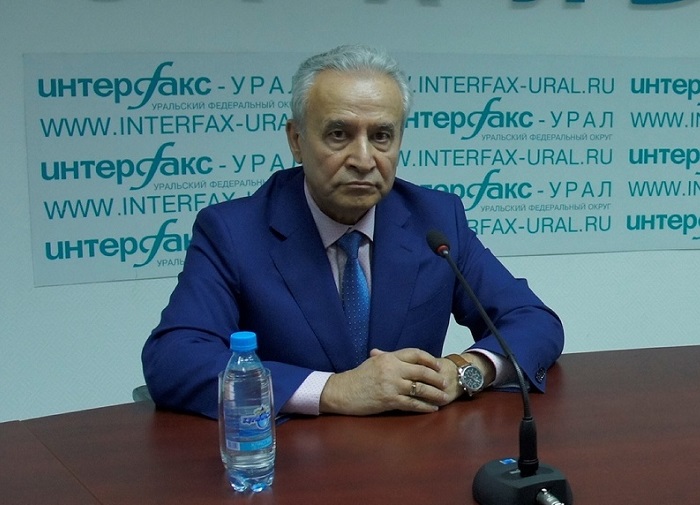 Telegram, ВКонтакте, Одноклассники
Telegram, ВКонтакте, Одноклассники
 Telegram, ВКонтакте, Одноклассники
Telegram, ВКонтакте, Одноклассники

The world has been living in a coronavirus pandemic for two years now. Many are accustomed to the new reality and do not perceive COVID-19 as something dangerous. Moreover, there is an opinion that with omicron, the disease proceeds more easily. However, experts in the medical industry believe that it is too early to relax. In an interview with 66.RU, Alebay Sabitov, head of the Department of Infectious Diseases and Clinical Immunology at the Ural State Medical University (USMU), dismantled popular myths about coronavirus and spoke about the features of treatment and prevention of coronavirus.
– The other day, the World Health Organization (WHO) announced that the coronavirus pandemic could end before the end of 2022. Do you agree with this opinion?
– Please note that we are talking about the end of the pandemic only if after the end of the outbreak of the Omicron strain there are no new ones. Omicron spreads rapidly and has a large number of mutations. Will it all end there? So far, I don’t see any absolute grounds for an unequivocal answer “no”, since the appearance of other varieties of the virus is not excluded.
– But the same WHO representative in Russia, Melita Vujnovich, expressed the opinion that omicron is less dangerous than its predecessors. This is true?
– Yes, diseases caused by the Omicron strain are milder. But that doesn’t mean it’s easy! Both severe forms and adverse outcomes can develop. Firstly, the incubation period was reduced – from two weeks, as with the first strains, to several days. Secondly, the severity of the disease increases faster. And if in the first wave we said that the coronavirus is dangerous for the elderly, now we see that more and more young people and children are getting sick.
– Despite the fact that the world has been living with the coronavirus for two years now, many still believe that it is no more dangerous than the flu, they have fanned the panic around it and are trying to capitalize on it. To what extent is this opinion justified?
– When the first wave came, even in our professional community we discussed what was worse: the flu or the coronavirus. And at first they gave the palm to influenza. But when more than two years have passed, we can say that covid-19 is far from a banal infection. Throughout the time, the coronavirus infection presents unpleasant surprises, changes its face. We understand that coronavirus causes damage not only to the respiratory tract, but also to the walls of blood vessels, causing a systemic disorder of blood flow and damage to various organs. Unfortunately, the fatality rate for covid-19 turned out to be 20 times higher than for influenza: 2% on average around the world versus 0.1% for influenza.
– But if the coronavirus is constantly mutating, is it possible to talk about the effectiveness of vaccines and medicines for it?
– The virus is changing, so are the versions of treatment. If at the very beginning the Ministry of Health recommended a combination of lopinavir and ritonavir, drugs used to treat HIV infection, now drugs with direct antiviral action are in the first place.
– These are not new developments, are they?
– Yes, in fact, they were developed decades ago as anti-influenza. The same favipiravir and its trade names (“Avifavir”, “Areplivir”, “Coronavir”, etc.). The task of such drugs is to help avoid the serious consequences of the disease. Our Ural scientists have created an antiviral drug for the treatment of the same respiratory pulmonary infections – Triazavirin, which in 2021 was included in the federal clinical recommendations of the Russian Ministry of Health for the treatment of influenza and SARS.
– What is the difference between Triazavirin and other drugs with direct antiviral action?
– Our university conducted trials of triazavirin in the treatment and prevention of COVID-19. Symptoms of the disease pass faster, especially if treatment is started early. In some cases, triazavirin rarely causes complications, and primarily from the liver. And no matter how the virus changes, direct-acting antiviral drugs can affect the stages of its life cycle, reducing the ability to reproduce. Therefore, such drugs, most likely, should be effective when new strains appear.
– For two years, scientists had finalized the drugs, invented a vaccine. Are there any additional ways that you can protect yourself so as not to get sick?
– In fact, nothing fundamentally has changed, but people have relaxed and stopped feeling the danger that is not visible. First, a high level of responsibility is required. You can not endanger others, even if you yourself are ill in a mild form. Secondly, continue to use antiseptics and wear masks. People, frankly, do not always adhere to these measures. Thirdly, vaccination. There is such a myth that you need to get sick and then the vaccine is not needed. But then let’s talk about diphtheria, tetanus, poliomyelitis, measles. What, in the XXI century we will be guided by the principles of natural immunization? Not every organism can cope with the infection on its own without harming itself. As soon as we refuse vaccination, humanity will definitely take a few steps back.
Yes, practice shows that vaccination does not give a 100% guarantee against infection with coronavirus. But this happens with any disease, including the polio and measles mentioned above. It’s just that the disease proceeds in milder forms, without severe forms, let alone deaths.
– That is, in any case, everyone has a chance to get coronavirus. What to do if you wear a mask, have been vaccinated, but still have symptoms of coronavirus?
– Treatment should be started at the first symptoms, even if you do not know the test results. For this, etiotropic drugs that fight directly against viruses, such as Triazavirin, are suitable. The spectrum of action of such drugs is aimed at combating all RNA-containing viruses – SARS, influenza, COVID-19.
Source: 66.ru